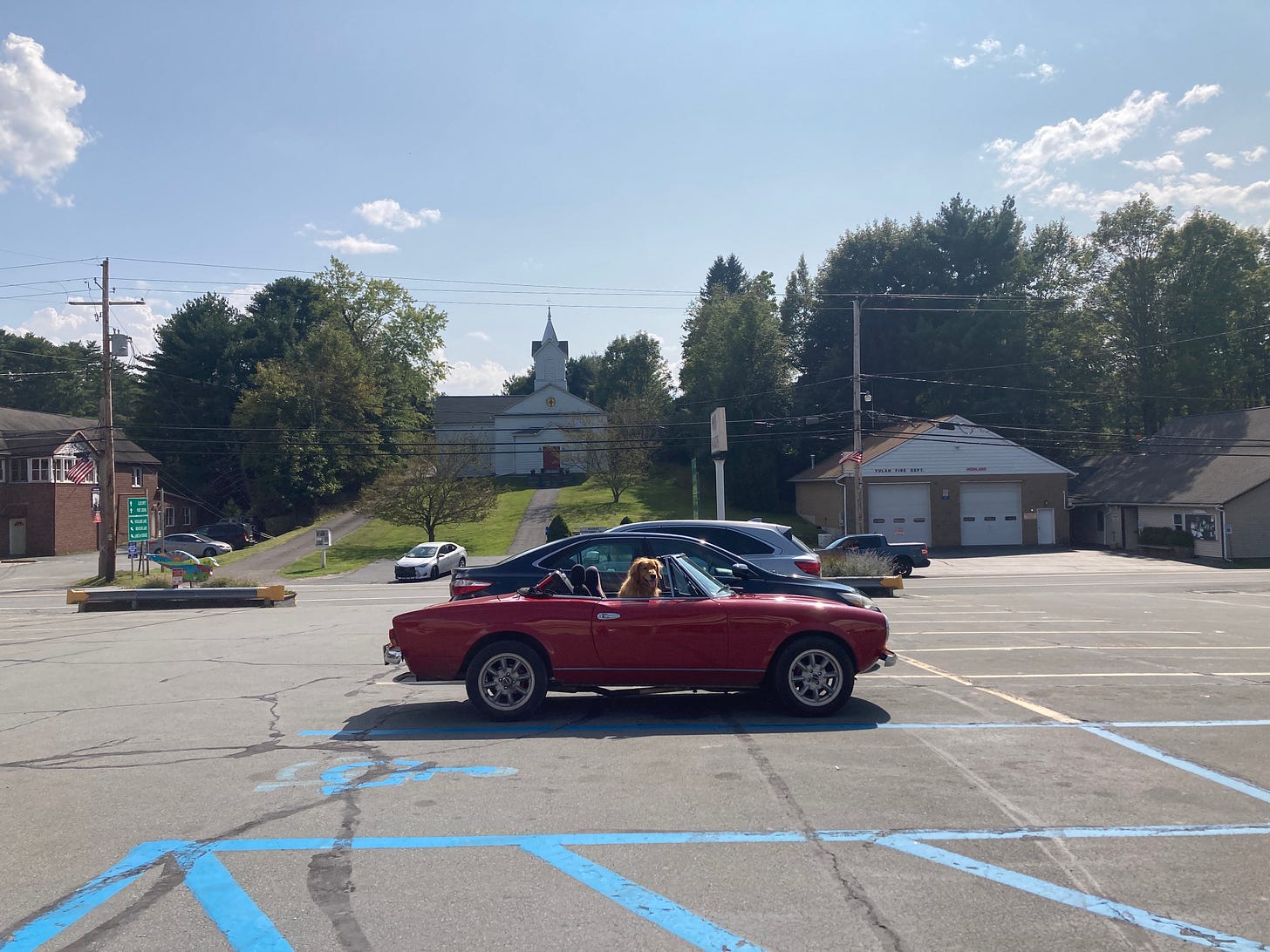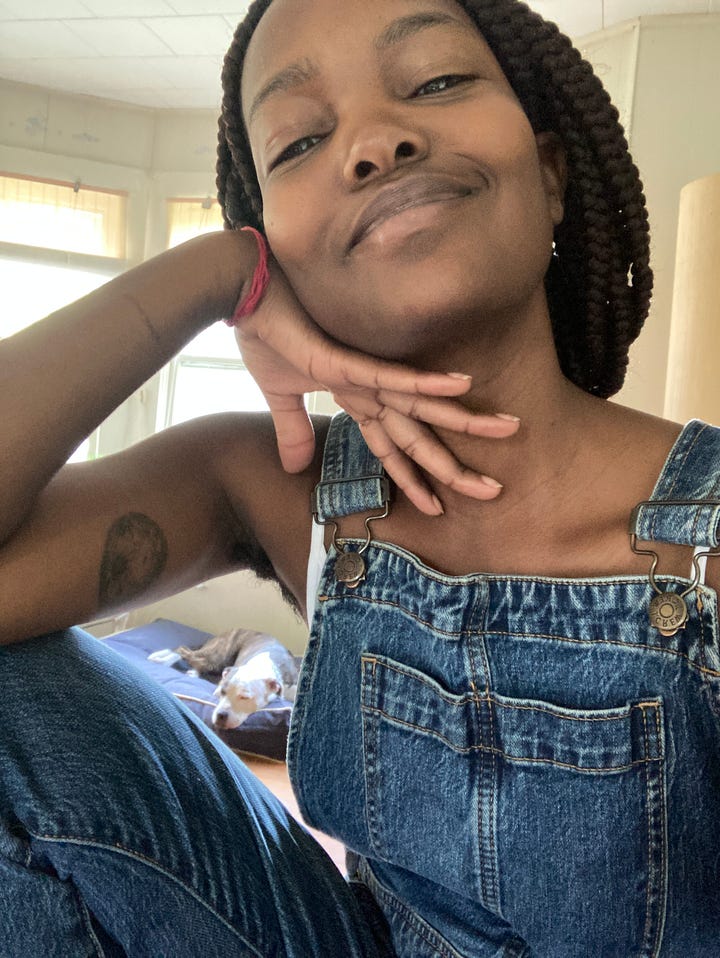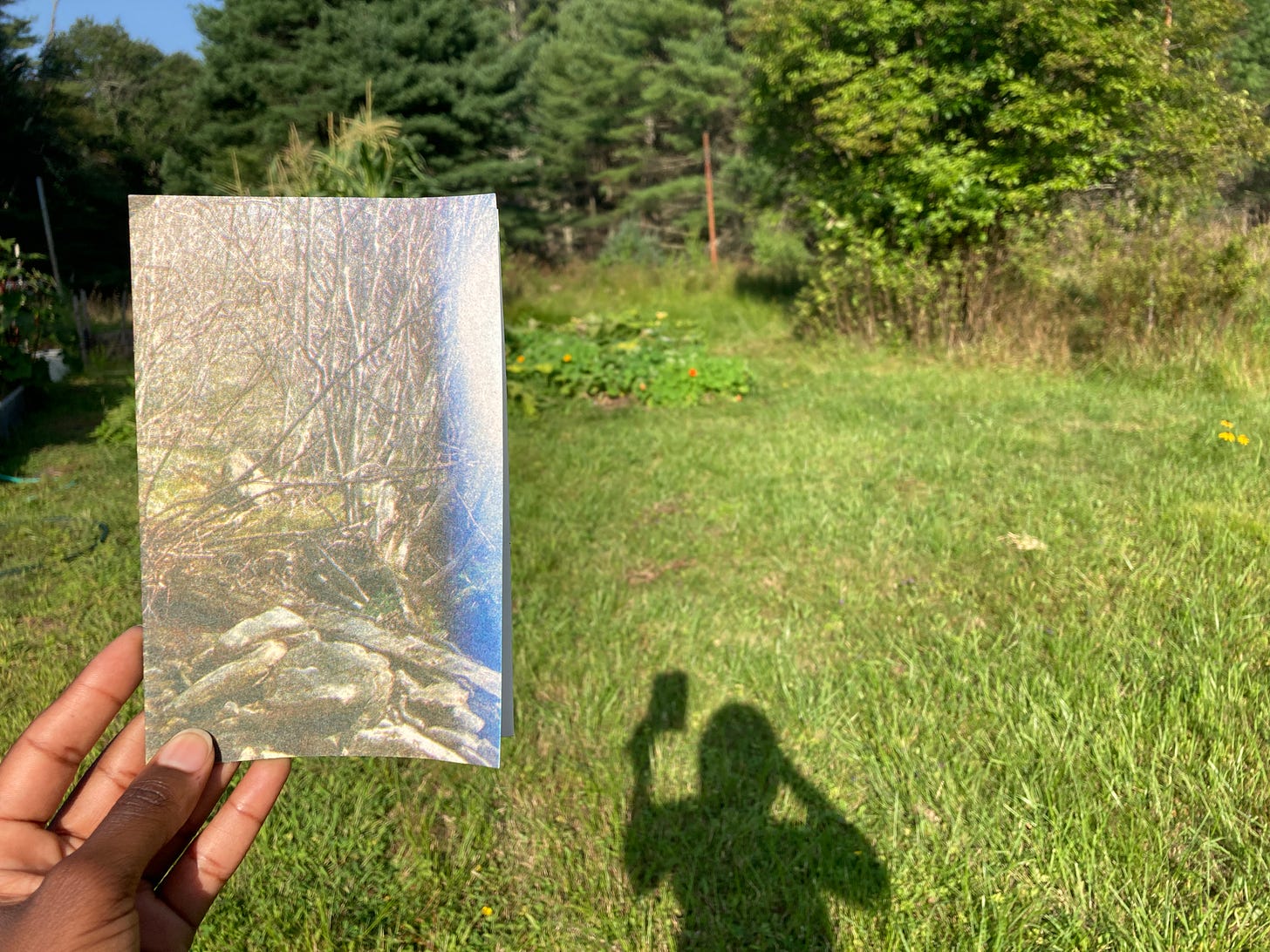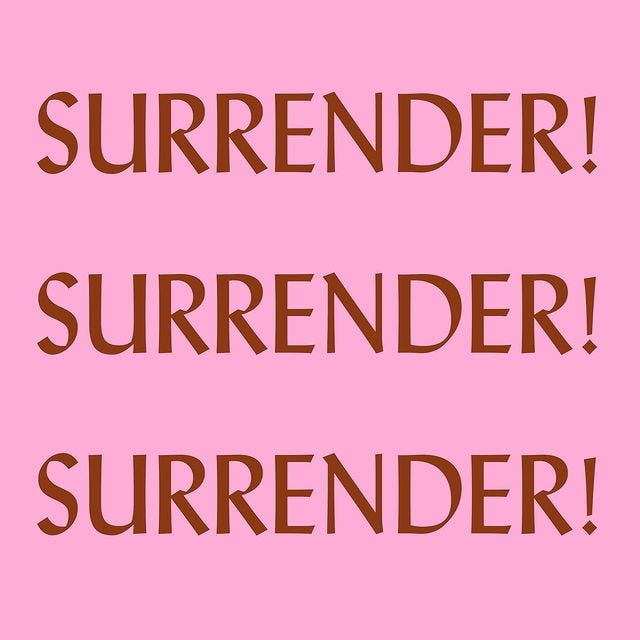I recorded the audio of this month’s slowly, slowly. You can listen above.

Hello from the Upper Delaware River, where I am closing out August with a couple of weeks in Upstate NY. I arrived on the first day of the Democratic National Convention and watched all four nights of videos, speeches and promotional content from the quiet of the country. I didn’t expect to watch but then felt called to participate in the moment. If history is indeed happening (and they keep saying it is), I want to be a witness.


I am a registered member of the Democratic Party. When I first registered to the party in my 20s, it was an ideological choice. Obama was still in office and I wanted to participate in another historic moment, voting for Hilary Clinton during the 2016 NY primary. Eight years later, my party registration feels more strategic than anything. New York State has closed primaries, meaning only registered party members can participate in the primary. I pay to play, so to speak.
It has been interesting to watch the party pivot from the existential dread of Joe Biden’s disastrous debate performance to a kind of bacchanalian fever-pitch of officially nominating Kamala Harris as the Democratic Candidate.1 The message from the DNC was “Joy”. It’s the vibes election! The roll call was a DJ set (Lil’ Jon was wasted on this audience IMO but the Senator Warnock and Lil’ Jon high-five moment was cute ) and after eight years Dems seem to have finally found an authentic way to shade Donald Trump (see: “creepy” and “weird as hell”). In Bill Clinton’s speech, he told the audience that the Democrats are doing so well right now because “we’re happy”. That Kamala Harris is The President of Joy.
It is a powerful message. The Democrats are saying “We’re happy! Doesn’t it feel good to be happy? It could be like this all the time.” - appealing to the desperation that our country has to feel good after so many years of feeling bad.
The truth of American foreign policy is not joyful. The convention missed an opportunity for radical inclusiveness by not including the delegates of the Uncommitted Movement in the speaking agenda. During the joyful roll call, I heard one delegate literally lower his voice when naming the protest votes for his state, before exuberantly declaring the state’s remaining votes for Harris-Walz (while some states didn’t call the protest votes at all). For all the talk about listening to community, the Democratic Party spent this past week alienating and minimizing the voices of its members. So, I’m not particularly happy or joyful in this moment. I’m more trying to be awake and aware to the information I am receiving.
***
I’ve spent a lot of time this summer thinking about the time we’re in, the times we’ve been through, and how despite our greatest attempts, we repeat patterns. The internet is saying that we’re in a revival of 2008-Obama-era optimism. I’ve been spending much of this summer further back in the timeline in the early-2000s. In these years, Rebecca Solnit published Hope in the Dark: Untold Histories, Wild Possibilities (2004), in response to the despair of the the Bush administration’s 2003 invasion of Iraq during the “Global War on Terrorism”. Anti-war protesters had spent the years between the 9-11 Attacks and the Iraqi invasion diligently organizing against the war. When after all the heart-effort placed into these organizing efforts, the Bush Administration invaded Iraq, many organizers began asking themselves “Why?”
Why do our cries fall on deaf ears?
Why should we continue to organize in the face of such sorrow?
Solnit counters that hope and suffering are not so far removed from each other. She emphasizes the small-scale organizing wins that occurred in the previous decade and gives the reader an orientation toward the micro. Yes, U.S. foreign policy is funding the destruction of lives. But the Zapatistas Uprising is challenging institutions in Mexico and direct actions from the anti-nuclear organizers are influencing policy. Solnit tells us that ordinary people taking collective action can have influence. Of the dark, she asks us to question: is it the darkness of the tomb, or the darkness of the womb?2 She asks that we contemplate Virginia Woolf’s words3 “The future is dark, which is the best thing the future can be, I think.”

I also spent a section of the summer in the world of Six Feet Under, which aired on HBO from 2001 - 2005. It felt good to spend time with a show about grief at a moment when so many of us are trying to say goodbye to old formats and ways of being. The show explores life and the inevitability of death, and how despite the trauma that exists between those two moments, life can flourish.
Six Feet Under is very 2000s (Claire and her friends singing along to Transantlancism4 😵💫) and you can track the political consciousness of the country through the character’s development and the people they interact with over the seasons.
In the show’s penultimate episode, “Static”, the Fisher & Diaz clients of the episode are a mother and daughter who are burying their son and brother. In the cold open of the episode the audience watches that man, a 20-something U.S. soldier returned from Iraq, kill himself. At the wake, the bereaved daughter reflects:
“We are living in, like, the unluckiest time ever. I mean I grew up thinking I was born in the time that there was the internet, you know? And the fall of communism and The Gap. Turns out my time is when there is, like, 9/11, a bunch of wars and the end of everything.”
“Static” Six Feet Under, Season 5, Episode 11
Both Hope In the Dark and Six Feet Under had me in a kind of archival research project for “this moment”. What does this 2004 archive have to tell us about how those people survived that time, what thoughts and language are we repeating?
I think that the archive is telling me that regardless of the moment, we people are always wondering “How are we going to get through?” Every moment is “a time like this” where we’re looking for a person or community to reflect us. Or an “uncertain time” where the fight feels insurmountable. We’re repeating the language of “Am I going to be okay” again and again and again.
This is why I don’t begrudge anyone their political joy in this moment. The Democratic Party is saying “Yes, you are going to be okay” and it’s an intoxicating proposition. People want to feel okay. I want to feel okay too. However, I do reject blind joy. I want a joy that is awake and aware of the liberation work this moment calls us to.
Last week I listened to an interview with a Wisconsin delegate traveling to the DNC. As they approached Chicago, she tells the reporter that being a delegate feels monumental. She muses on this moment: “…being proud that I was chosen for a time such as this. Like, why me at this time? - feeling that I have a job to do.5” I feel like hope needs to be protected. Like hope is a seed of awakening that tells us something different is possible and in this moment it is drawing out organizers to join movements, get involved in direct actions, launch campaigns, and host political education circles with their friends. Hope is asking us: living the long years of despair, what is our work to do?
xo Jessica
MEASURING TIME

I also spent the summer diving into risograph printing. By the skin of my teeth, I finished designing, printing and constructing this little edition titled MEASURING TIME. It’s a poetic reflection on memory, jumping timelines and bringing our younger selves into the present.

The next 10 new paid subscribers (or upgrades to your existing paid subscription!) will receive a copy of MEASURING TIME along with a thank you note from me, of course. As ever and always, thank you for your support.
SYLLABUS
I wrote a syllabus for Syllabus Project!
It is about building a ritual around letting go and the radical possibilities of release. You can read it here. Let me know any thoughts or reflections this writing prompts for you.
Work with me.
You can find me weekly at Heal Haus, five days a week at Arena, and often at 462 Halsey Community Farm.
🌞
And I’m not immune to the pull of history! During the convention, they played HARD on the immigrant imagination, ie. Kamala’s daughter of immigrants storyline. After four nights of hearing the “Immigrant rags to riches” story, I couldn’t help but think “Daugther of immigrants 🤝🏾 Daughter of Immigrants”.
See: Valerie Kaur.
Written in Virginia Woolf’s diary on January 11, 1915, at the outset of World War I.
Transatlanticism came out in 2003?!





